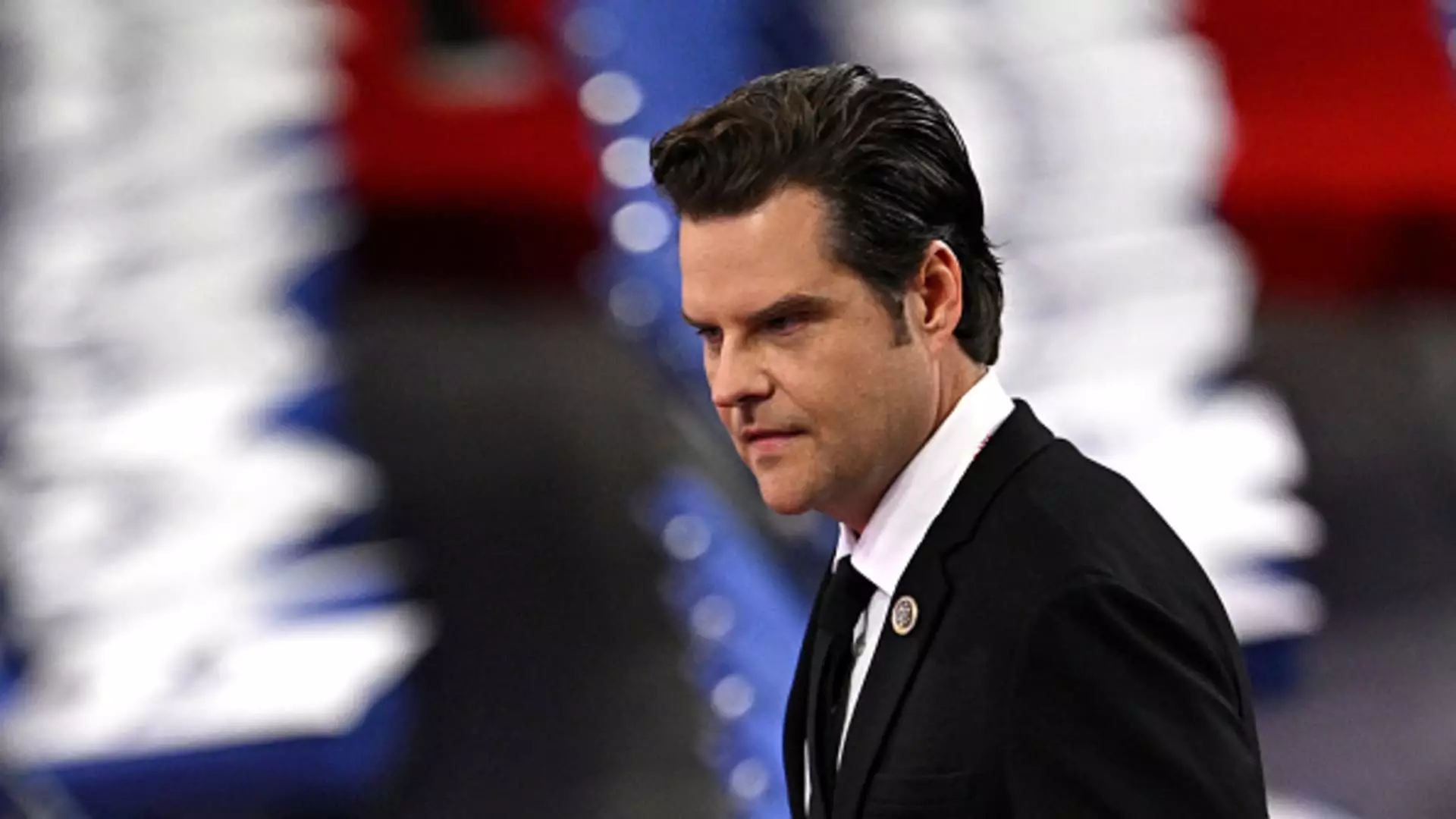The political landscape often faces turmoil when serious allegations surface against public figures, particularly those in positions of authority. One of the most controversial cases in recent memory involves Matt Gaetz, a prominent Republican congressman linked closely to former President Donald Trump. Allegations of sexual misconduct, specifically involving a minor, have cast a shadow over Gaetz’s political career. A recent testimony provided to the House Ethics Committee claims that Gaetz was witnessed engaging in sexual activities with a minor at a social event, placing a considerable weight of scrutiny on his nomination to the attorney general position.
According to the lawyer representing the woman making the allegations, Joel Leppard, the testimony was presented during an April session of the House Ethics Committee. Leppard emphasized that Gaetz’s actions at a party in Orlando in 2017 constitute a serious breach of ethical conduct expected of someone vying for the role of the nation’s top law enforcement officer. This revelation raises significant questions about the moral and ethical fitness of Gaetz for such a crucial position within the federal government.
Despite these serious allegations, Gaetz has firmly denied any wrongdoing, labeling the claims as part of a politically motivated effort to undermine his career. However, such denials should be weighed cautiously, given the gravity of the accusations. The investigation, which had previously been launched by the FBI regarding sex-trafficking allegations, concluded without charges against him. Yet, the absence of legal repercussions does not necessarily equate to vindication, especially with multiple witnesses ready to testify in the ethics investigation.
Gaetz’s sudden resignation from Congress raises further questions about the political ramifications of such allegations, especially in relation to his anticipated nomination for attorney general. Political analysts are observing closely how this situation will unfold, particularly regarding the Senate’s confirmation process. There are voices, including those of Republican senators, expressing a desire for transparency in the findings of the House Ethics Committee’s investigation prior to any confirmation votes.
Republican House Speaker Mike Johnson has suggested that releasing the ethics report after Gaetz’s resignation could be a breach of protocol. This statement reflects a broader desire among some political factions to manage the narrative surrounding Gaetz and the potential fallout from the allegations. It brings to light crucial discussions about accountability and the mechanisms of oversight that should govern the conduct of public officials.
The case also draws attention to the Justice Department’s role and its past investigations concerning Gaetz. The department previously cleared him of any significant charges, leading some to question whether a thorough investigation was conducted or if there were other underlying motives influencing its conclusions. The fact that the Department of Justice deferred the ethics investigation at one point adds another layer of complexity to this ongoing saga, prompting speculation about possible cover-ups or lack of political will to hold influential figures accountable.
The intricate dynamics of power within political circles often complicate the pursuit of truth and justice. As levers of influence potentially shield certain individuals from scrutiny, the ethical fabric of political institutions can fray, leading to grievous consequences for public trust.
As the gears of justice and accountability grind slowly, the unfolding situation surrounding Matt Gaetz serves as a stark reminder of the perennial issues of trust, ethics, and morality in politics. With the ramifications of such allegations not confined solely to the accused but rippling through the political landscape, it becomes imperative for citizens and legislators alike to demand transparency and integrity from public officials.
The forthcoming decisions of the Senate regarding Gaetz’s potential confirmation as attorney general will undoubtedly shape public perception, and the ethical implications of this case could resonate far beyond the immediate parties involved. Moving forward, society must remain vigilant in its quest for accountability in governance, as the integrity of our political institutions relies heavily on the ethical conduct of those we entrust with power.



Leave a Reply